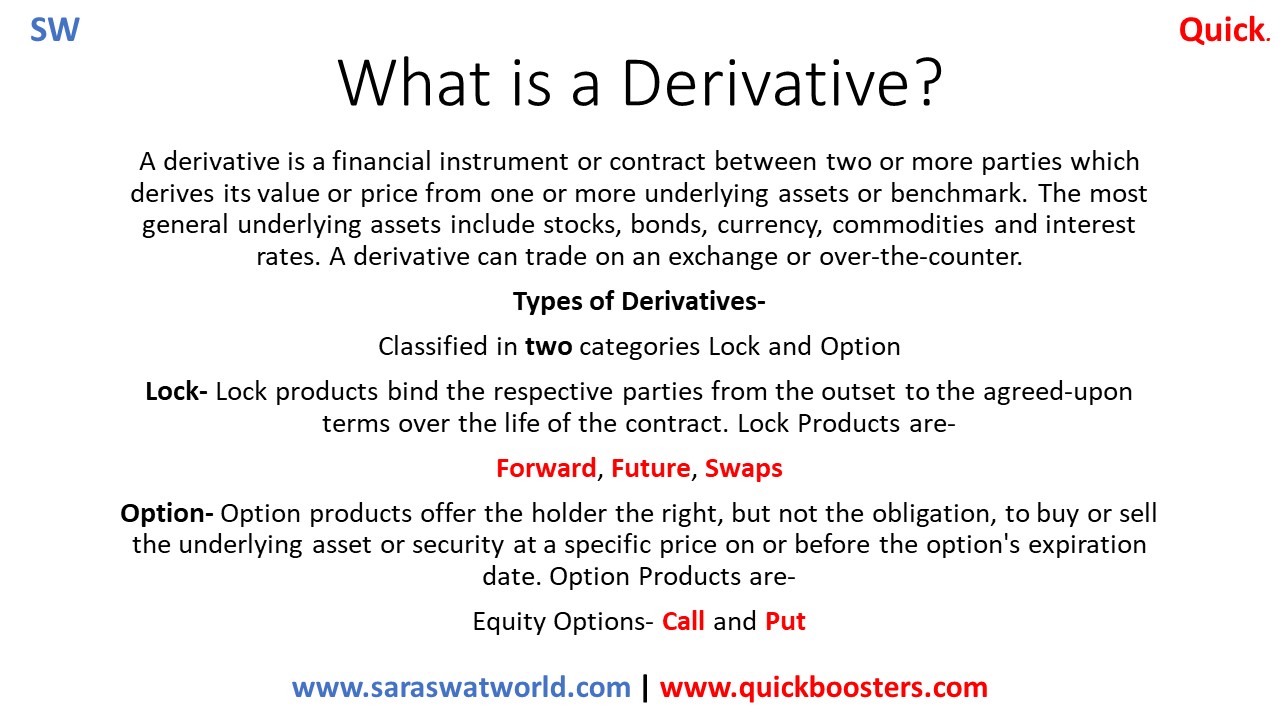Definition of Derivative
A derivative is a financial instrument or contract between two or more parties which derives its value or price from one or more underlying assets or benchmark. The most general underlying assets include stocks, bonds, currency, commodities and interest rates. A derivative can trade on an exchange or over-the-counter.
Use of Derivatives
- Hedging- is a strategy that tries to limit risks in financial assets. Purchasing Insurance on an asset or investment is an example of hedging.
- Speculation- is the purchase of an asset with the hope that it will become more valuable in the near future.
- Arbitrage- is the practice of taking advantage of a difference in prices in two or more markets.
Types of Derivatives
Classified in two categories Lock and Option
Lock- Lock products bind the respective parties from the outset to the agreed-upon terms over the life of the contract.
Lock Products-
- Forwards
- Futures
- Swaps
Option- Option products offer the holder the right, but not the obligation, to buy or sell the underlying asset or security at a specific price on or before the option’s expiration date.
Option Products-Equity Options-
- Call Option
- Put Option

Leave a Reply